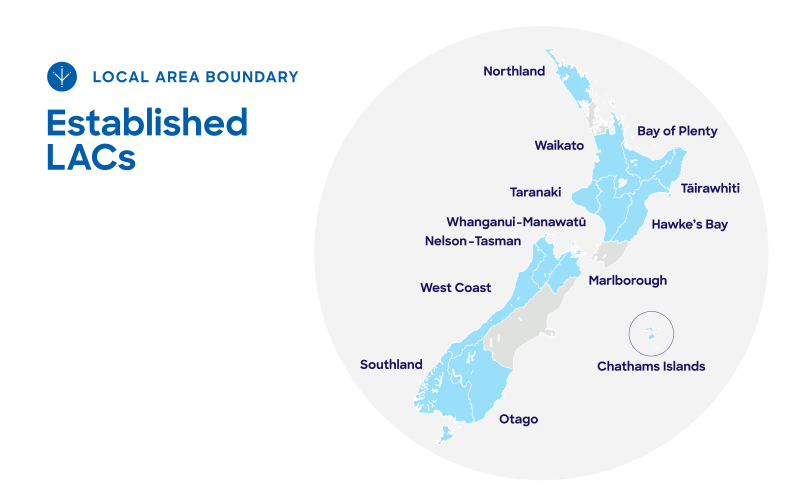What are Local Advisory Committees?
Local Advisory Committees provide independent advice to Fire and Emergency about what their communities value, their needs and the risks they face.
Use this space to note any additional information about your escape plan, i.e. who will assist
Smoke is poisonous and more deadly than flames.
If you breathe smoke for more than a few breaths it can kill you.
A house fire can kill you in less than three minutes.
Don't spend time trying to save possessions.
A closed door buys you time.
It slows down the spread of fire, giving you more time to get to safety.
People have died by going back into a fire.
Don't leave the meeting place to go back inside for any reason.
Local Advisory Committees provide independent advice to Fire and Emergency about what their communities value, their needs and the risks they face.
Local Advisory Committees (LACs) across the motu (country) bring strong local perspective and connections to inform our planning, strategy and delivery. They help us better support communities to reduce risk, prepare for and respond to emergencies, and recover quickly when they happen.
LACs are established by the Board under the Fire and Emergency New Zealand Act 2017, and operate under their Terms of Reference. [PDF, 616 KB] They actively engage with their communities, meet regularly and form advice to inform Fire and Emergency’s strategy, planning and service delivery.
We know each community is unique with different dynamics, strengths, risks, and needs. Some are at risk of seasonal events such as wildfires, flooding or drought. Some are remote and may be cut off if infrastructure and key services are disrupted during a fire or other emergency.
LACs work closely with Fire and Emergency to understand and engage with their communities by:
Over time, through the LACs advice, we expect to see the changing needs of communities informing our organisation and the services we provide.
The Fire and Emergency New Zealand Act 2017, allowed for the establishment of LACs to ensure strong local perspectives remained in our work as all fire services were unified into one organisation.
The first seven LACs in Northland, Tairāwhiti, Hawke’s Bay, Marlborough, West Coast, Chatham Islands and Otago were stood up in 2020. After one year of operation an independent report was commissioned to assess how the first seven LACs were doing, to inform next steps for the stand up of future LACS.
Overall, the report found that LACs are well-designed, are working as intended in their establishment phase and are well supported by our national and district teams.
Formative evaluation of Local Advisory Committees (LACs) final report(external link)
Four further LACs in Waikato, Taranaki, Nelson-Tasman and Southland were stood up in August 2024. Planning is underway to establish the remaining five LACs in Auckland, Bay of Plenty, Manawatū-Whanganui, Wellington and Canterbury.
Following public consultation, the Board set boundaries for 16 LACs. These boundaries mirror Civil Defence Emergency Management Group boundaries apart from the Tararua District being included in the Hawke’s Bay boundary (rather than Manawatū/Whanganui).
